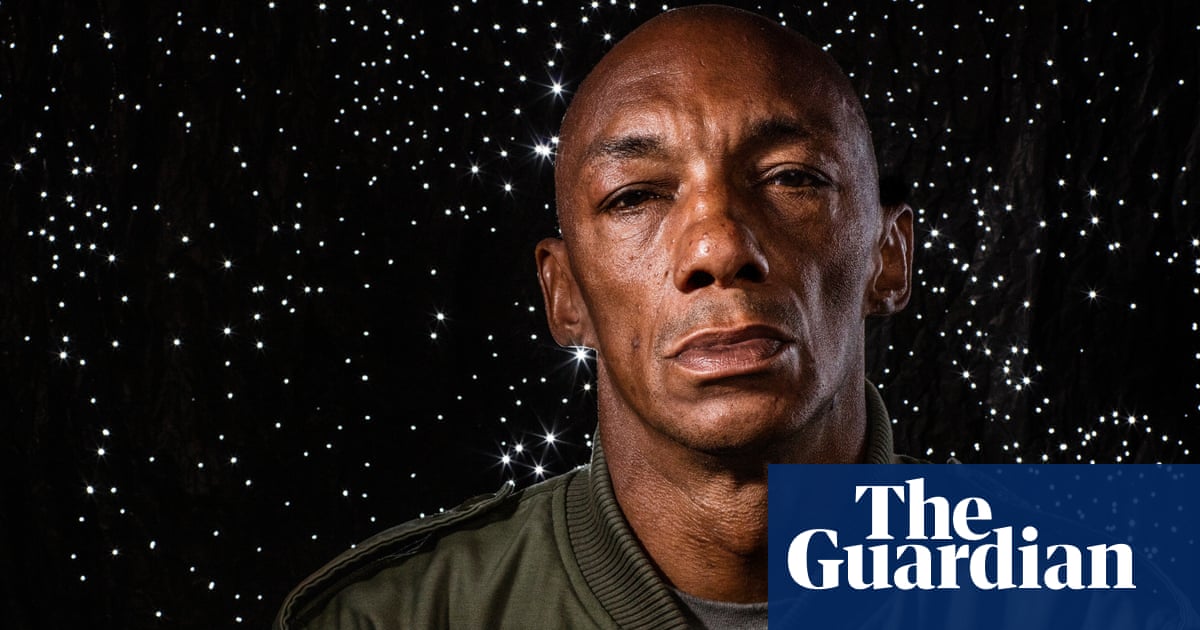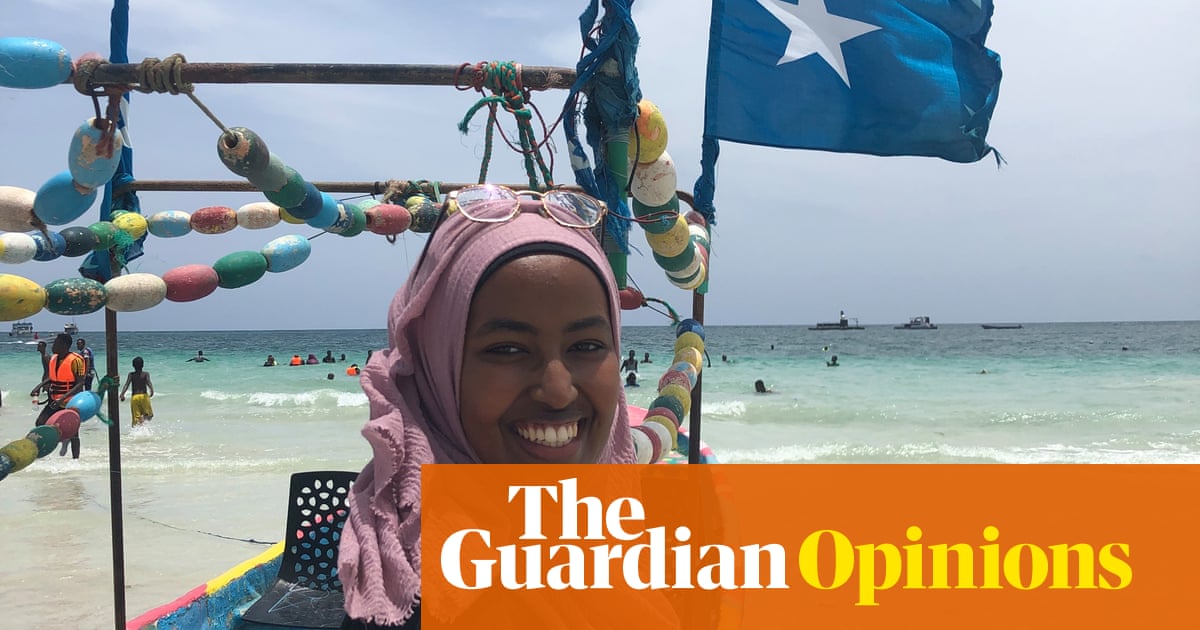
When I won the Booker prize in 2019 for my novel Girl, Woman, Other, I became an “overnight success”, after 40 years working professionally in the arts. My career hadn’t been without its achievements and recognition, but I wasn’t widely known. The novel received the kind of attention I had long desired for my work. In countless interviews, I found myself discussing my route to reaching this high point after so long. I reflected that my creativity could be traced back to my early years, cultural background and the influences that have shaped my life. Not least, my heritage and childhood
Through my father, a Nigerian immigrant who had sailed into the Motherland on the “Good Ship Empire” in 1949, I inherited a skin colour that defined how I was perceived in the country into which I was born, that is, as a foreigner, outsider, alien. I was born in 1959 in Eltham and raised in Woolwich, both in south London. Back then, it was still legal to discriminate against people based on the colour of their skin, and it would be many years before the Race Relations Acts (1965 and 1968) enshrined the full scope of anti-racist doctrine into British law.
My English mother met my father at a Commonwealth dance in central London in 1954. She was studying to be a teacher at a Catholic teacher-training college run by nuns in Kensington; he was training to be a welder. They married and had eight children in 10 years. Growing up, I was labelled “half-caste”, the term for biracial people at that time.
The concept of “black British” was considered a contradiction in terms during my childhood. Brits didn’t recognise people of colour as fellow citizens, and they in turn often aligned themselves with their countries of origin. I never had a choice but to consider myself British. This was the country of my birth, my life, even if it was made clear to me that I didn’t really belong. Yet Nigeria was a faraway concept, a country about which I knew nothing.
While the postwar Windrush Caribbean era of arrival has been well documented and explored, the equivalent African narratives have not. There were, however, many similarities. The moment my father arrived in Britain as a young man, he was brutally stripped of his self-image as an individual and had to assume an imposed identity. Britain was recruiting people from the colonies to fill the gaps due to casualties in the second world war and my father had duly travelled from his homeland, where he was just another human being. Instead of being welcomed as a Son of Empire, he encountered unfettered racism.
Nana, my maternal grandmother, was a dressmaker. My mother’s father, Leslie, was a milkman. His family had previously owned a dairy. Once my mother had become a schoolteacher, one of the few professions available for educated women in the early 1950s, she was on the way to becoming middle class. However, she was rapidly demoted to the bottom of society through her marriage to an African. In a sense, my mother became black by marital and – once her children were born – biological association; an “honorary black”, if you like.
When my mother became engaged to my father, her side of the family joined forces to stop what they saw as an abhorrent union – the ruination of my mother and a besmirching of the family name. Interracial marriage was rare back then, and on the scale of social taboos it occupied the top spot. My parents were unstoppable in their love and determination to spend the rest of their lives together. They had a small wedding attended by their Nigerian and English friends, with my grandmother the sole representative of her side of the family – looking resolutely sour-faced in the wedding photograph, while everyone around her celebrated with smiles.
It was seen as the worst thing to happen to my mother’s family, and Nana and my father never really got over the animosity caused by her antipathy towards him. My mother’s half-German grandmother never spoke to her again and her most beloved aunt, who had been her surrogate mother during the second world war when she was evacuated to the countryside, promptly cut her off, too, as did several other relatives.
Tellingly, although we were Nana’s only grandchildren, our photographs were never on display in her home along with other family photos, except for the first child, my sister, as a very young and very pretty baby who, to my grandmother’s relief, wasn’t as dark as my father. When one of my brothers married a white woman, a photo of the two of them also made it on to the windowsill. So, that was two grandchildren out of eight on show in her home.
Whatever my father’s status in his homeland, in Britain he worked in factories. He belonged to what I call the brown immigrant class of the time; his social positioning was determined by his race and outsider status, which was deemed lower than the white working class.
Our family struggled financially. As my mother didn’t return to teaching until her youngest child was of school age, my parents raised eight children on my father’s factory salary. Prioritising education, they managed to pay for my oldest brother to attend prep school for a few years. He still recalls the time when his class had to read out loud in turn from the popular racist children’s book The Story of Little Black Sambo (1899), about Sambo and his father, Black Jumbo, and mother, Black Mumbo. Sambo had long been a racial slur in America and Britain, and mumbo-jumbo was a pejorative term for black languages, which were considered nonsensical. When my seven-year-old brother, the only child of colour in the class, was forced to read from this racist text, everyone in the room erupted with laughter. He has never forgotten it.
My parents also paid for some of us to attend the conveniently located Catholic convent primary school next door, a voluntary aided state school partially funded by the Church, but which required a nominal contribution of £10 a year for attendance. My father, who had grown up in a barter culture where the cost of everything is up for negotiation, haggled with the nuns for a group discount, which reduced our annual fees from £10 per child to six. Hardly Eton.
Growing up biracial and brown-skinned in an overwhelmingly white area, my family endured the name-calling of children who parroted their parents’ racism, along with violent assaults on our family home by thugs who threw bricks at our windows on such a regular basis that as soon as they were replaced, we knew they’d be smashed again. My father chased after the throwers and literally dragged them to their parents’ homes to make them pay for the damage. As a child, you are profoundly affected by this level of hostility without being able to intellectualise or articulate it. You feel hated, even though you have done nothing to deserve it, and so you think there is something wrong with you, rather than something wrong with them.
It seemed unfair because I felt the same inside as my little white pals. We liked the same music and television programmes, breathed the same air, ate the same food, had the same feelings – human ones. In time I developed a self-protective force field around me, which persists to this day.
The inevitable culture clash of an immigrant whose idea of raising children originates in a completely different culture marred my childhood. For a Nigerian man born in the 1920s, children were to be seen and not heard, and should receive corporal punishment for crimes committed against his militaristic regime. I lived in fear of my father, of the wooden spoon he used for minor offences and the belt he used for major ones. My mother pleaded for leniency on our behalf but she didn’t have much luck overriding the authority of the Oga, the chief, the patriarch in the household.
There was nothing in the British society of my suburban childhood that endorsed the concept of blackness as something positive, other than the music coming out of America such as that of the Supremes, the Jackson 5, Stevie Wonder and the Four Tops. It was otherwise synonymous with being bad, evil, ugly, inferior, criminal, stupid and dangerous – and my father was frightening. As one of my brothers used to say, “When Daddy walks through the front door, joy runs out the back door.” He never spoke to us unless it was to deliver a very long lecture on our apparently bad behaviour, sometimes lasting up to an hour, while we had to stand there to attention, looking as if we were taking it all in like good little children – no smirks, frowns, yawns, eye-rolling, or we’d be for it.
If we wanted to go out somewhere with our friends, we needed to put in a request weeks in advance and would have to listen to another lecture, usually conducted while he ate the dinner he cooked himself – meat, potatoes, carrots, cabbage, all completely mashed up with gravy. He always came home from work and cooked his own dinner. This he ate straight from a saucepan, as he did his morning porridge, which was quite practical, when you think of it, as it saved on the washing-up. At the end of the interminable lecture, permission was likely to be declined.
When my father came home from work, usually after our tea time, he sat in the kitchen with my mother while we children sat in the living room above, watching television. He always sounded angry, so we’d press our ears to the floor trying to decipher what he was saying. Most of the time he wasn’t angry at all, and it was only when I first visited Lagos that I realised the way he spoke was specific to his culture. Men everywhere appeared to shout angrily, until I discovered they were just talking expressively and, yes, loudly.
As a family we’d have lively conversations after our evening meal with our mother, who encouraged us all to speak up and express ourselves. We caught up on the day, teased each other and talked about current affairs. With stretched finances, she made sure we ate nutritiously, counting out the slices of cucumber and lettuce leaves on our plates. One or two boiled sweets a week were a Friday evening treat. We couldn’t afford visits to cafes or restaurants, and holidays were few and far between. I remember a school trip to Stonehenge, a camping holiday in a crowded caravan when it rained all the time, and a horribly memorable trip to visit one of my mother’s friends in Somerset, whose racist children called us “monkeys”. Imagine the hurt. I was about nine and so excited to be going on holiday, only to be treated despicably by the very children who should have befriended us.
My mother had a kind of earth-mother vibe going on, which counterbalanced our father’s authoritarian parenting. We children jostled each other to be the lucky ones to link arms with her when walking in the street to church, and to massage her feet in the evening when she finally joined us watching television after the housework had been completed.
I was a tomboy, squashed between two brothers who let me play with them until they didn’t. I’m the fourth in the family and we middle children tend to be very independent. You just get on with it. I’ve always felt myself to have an inner strength, by which I mean that I’m not needy or clingy, I don’t crave approval all the time and I’m happy with my own company. In terms of my career, a tough inner core has been essential to my creative survival. This hardiness probably first developed in my very early years. I’ve never had therapy as I like to live with my demons. By this, I don’t mean that I’m living with unresolved trauma, but I’ve become adept at self-interrogation and have never felt driven to seek help. I like to work things out for myself.
In time, I understood and appreciated that my father kept us safe. We were well looked after and he was financially responsible. My parents stayed together for 33 years in an era when interracial marriages tended not to last long. He was the best father that he could be, for one deracinated from his Nigerian culture where there would have been a lot more support for raising his large family. Yet we feared him and he, in turn, was fearful for us. He knew how unsafe it was for us in Britain. His four boys and four girls needed to be protected. As we became teenagers, we also probably needed to be protected from ourselves.
Outside the family, he was gregarious, the life and soul of the party, making friends with people of every race, much as I have always done myself. In the 1970s, my parents got involved in politics and I am inordinately proud of them for not only embodying love between the races but going one step further and flying the flag for equality. At work, my father befriended a Polish man who was a communist, and who influenced his thinking to the extent that my father joined the trade union and became a shop steward on the factory floor, standing up to management on behalf of his fellow workers, losing jobs as a result. He was also elected as a Labour councillor, an unpaid role, with a remit to assist disadvantaged people in his ward, especially those on benefits or low incomes, and to represent them at local borough council meetings. He was the first black man to hold this role in Greenwich. Twenty years ago, when I was told on the phone in the middle of the night that, after several strokes, my father had died, I collapsed sobbing on to the floor. My attitude towards him had evolved. Doubtless he rubbed people up the wrong way, but I am in awe of his journey from beleaguered immigrant to community champion of the working classes – of all colours.
My own journey has been a long one, from growing up in the 1960s in a family targeted by racists. Many of the roles I’ve assumed in my professional life would have been unthinkable at the time of my birth and I could never have envisioned them as a young woman, not only writing books but also sitting on boards, editing publications, chairing prize juries and a professorship. The person I am today no longer throws stones at the fortress. I sit inside its chambers having polite, persuasive and persistent conversations about how best to transform outmoded infrastructures to accommodate those who have been unfairly excluded. The rebel without has become the negotiator within, who understands that we need to sit at the table where the decisions are made, and that enrolling people in conversations is ultimately more effective than shouting at them (satisfying as that can sometimes be).
I won the Booker prize at 60, which was the perfect age for it to happen to me, although astonishing that it happened at all. At this stage in my life, not only have I developed a formidable work ethic, but I know that I will not rest on my laurels. I feel lucky to have inherited these qualities from forebears who never gave up: my mother, who wasn’t going to relinquish the man she loved because her family disapproved; my father, who walked into the flames of racism in Britain and fought to improve the lives of working-class people of all colours; all the other ancestors who kept going when life became impossible – crossing seas, relocating from home to hostile lands, the known to the unknown – in order to build new and improved lives for themselves. I was never going to be a person who accepts defeat, who was going to give up. I was walking on the ground they had laid for me over many generations.












